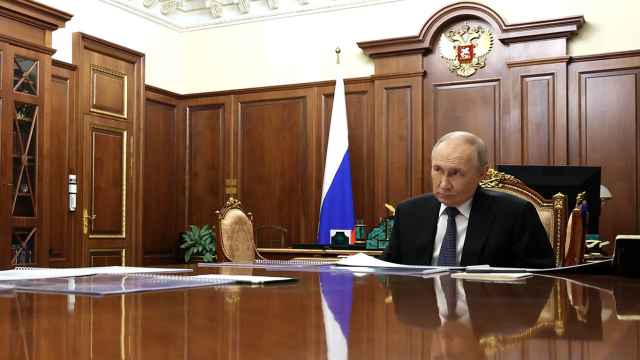Russia's Polyus Gold swung to a profit in the first half of 2014 from a year-ago loss thanks to higher sales volumes, cost-cutting and a fall in the ruble, which outweighed a fall in gold prices.
Russia's biggest gold miner, which is part-owned by businessman Suleiman Kerimov, on Friday reported a net profit of $253 million for the first six months, compared with a net loss of $167 million for January-June 2013, when the company had to record big impairment charges because of a sharp fall in gold prices.
Gold sales volumes increased 15 percent year-on-year to 751,000 troy ounces.
Revenue declined 2 percent to $1 billion, however, due to lower prices, Polyus said, citing an average price of $1,296 per troy ounce in the first half, down 14 percent from the first half of 2013.
Polyus was able to reduce production costs during the first half by 13 percent to $662 per ounce from $757 a year earlier thanks in part to a weaker ruble, the company said.
"The company is satisfied with results to date of the cost-cutting initiatives implemented across its assets in 1H 2014, enabling all of the operations to maintain solid profitability despite depressed gold prices", Polyus said in the statement.
Earnings before interest, taxation, depreciation and amortization, EBITDA, were down 6 percent to $393 million due to lower gold prices. The net also benefited by comparison with last year, when the company recorded large impairment charges.
Polyus added that it remained on track to produce 1.58 million to 1.65 million troy ounces in 2014 and confirmed plans to launch its vast Natalka project next summer.
Benchmark gold prices in London reached a two-month low of $1.273.06 this week, hurt by data showing a recovering U.S. economy and by speculation that the Federal Reserve could hike interest rates sooner than expected.
See also:
A Message from The Moscow Times:
Dear readers,
We are facing unprecedented challenges. Russia's Prosecutor General's Office has designated The Moscow Times as an "undesirable" organization, criminalizing our work and putting our staff at risk of prosecution. This follows our earlier unjust labeling as a "foreign agent."
These actions are direct attempts to silence independent journalism in Russia. The authorities claim our work "discredits the decisions of the Russian leadership." We see things differently: we strive to provide accurate, unbiased reporting on Russia.
We, the journalists of The Moscow Times, refuse to be silenced. But to continue our work, we need your help.
Your support, no matter how small, makes a world of difference. If you can, please support us monthly starting from just $2. It's quick to set up, and every contribution makes a significant impact.
By supporting The Moscow Times, you're defending open, independent journalism in the face of repression. Thank you for standing with us.
Remind me later.





